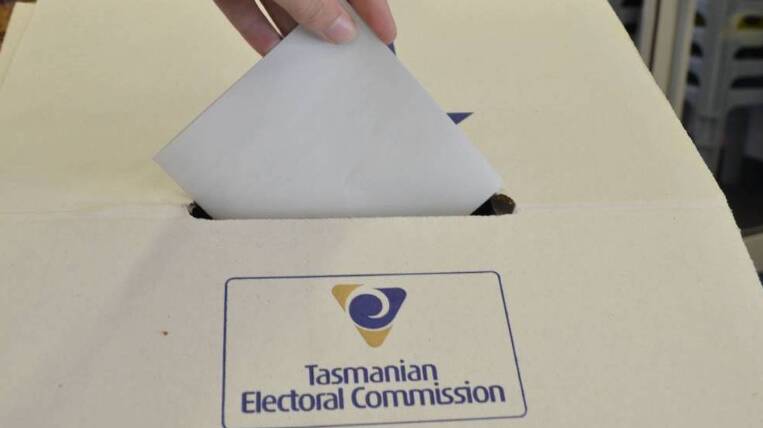
Tasmanians will partially foot the bill for future state elections under legislation to be introduced into Parliament this year.
Subscribe now for unlimited access.
$0/
(min cost $0)
or signup to continue reading
The extent to which public money will be used for administrative election costs and campaign messaging is so far yet to be determined, but anticipated to be in the millions of dollars.
The state government on Tuesday released its final report on the Electoral Act Review which contained 11 recommendations for reform.
IN OTHER NEWS:
Premier Peter Gutwein said the government accepted each of the recommendations in principle which would be used to inform legislation to be introduced to Parliament before the winter break.
Mr Gutwein said the legislation would introduce a new state-based threshold for donation disclosure of between $1000 and $5000, in line with other states.
He said donations would be declared on a six-month basis at least outside of an election period.
Mr Gutwein said disclosures during an election would be more frequent.
Foreign or anonymous donations over a level to be set would be banned, he said.
Mr Gutwein said many individuals and businesses felt political preference was a private matter and would possibly no longer wish to donate to parties or individual candidates if their donation was disclosed.
"Electoral reform will come at a cost as increased disclosure will mean less voluntary donations will be received by parties and independent candidates," Mr Gutwein said.
"Therefore, public funding will be necessary to support administrative functions and the communication importantly of policy platforms to the wider community during an election."
He said he expected the cost to the public purse would be around $2 million per election campaign in Tasmania.
At a federal level, each vote received pays $2.74 under a public funding model.
In Western Australia, $1.91 is received per vote, $8.24 is received for each vote in the ACT, and $6 is received per vote in Victoria.
The report recommended that the need for caps on electoral expenditure for candidates for the House of Assembly be considered at another time.
It recommended a regime be introduced for third party campaigners for electoral expenditure, donations and loans received during the election period.
Labor's Ella Haddad said it was Tasmanians had the right to know who was funding the state's political parties and election candidates.
She said she hoped to see election caps for House of Assembly candidates listed in the government's bill.
In Labors political donation reform bill, there was an expenditure caps for political parties of $1 million and of $100,000 for House of Assembly election candidates and third-party campaigners.
Ms Haddad said Tasmania was the only Australian jurisdiction that did not have some form of public funding for its elections.
Greens justice spokeswoman Rosalie Woodruff said after a two-year wait, the report was underwhelming in its detail and commitment to time frames.
"Decisions on important reforms such as expenditure caps, bans on corporate donations, and public funding, have all been deferred - despite being part of the terms of reference of this two year review process," she said.



